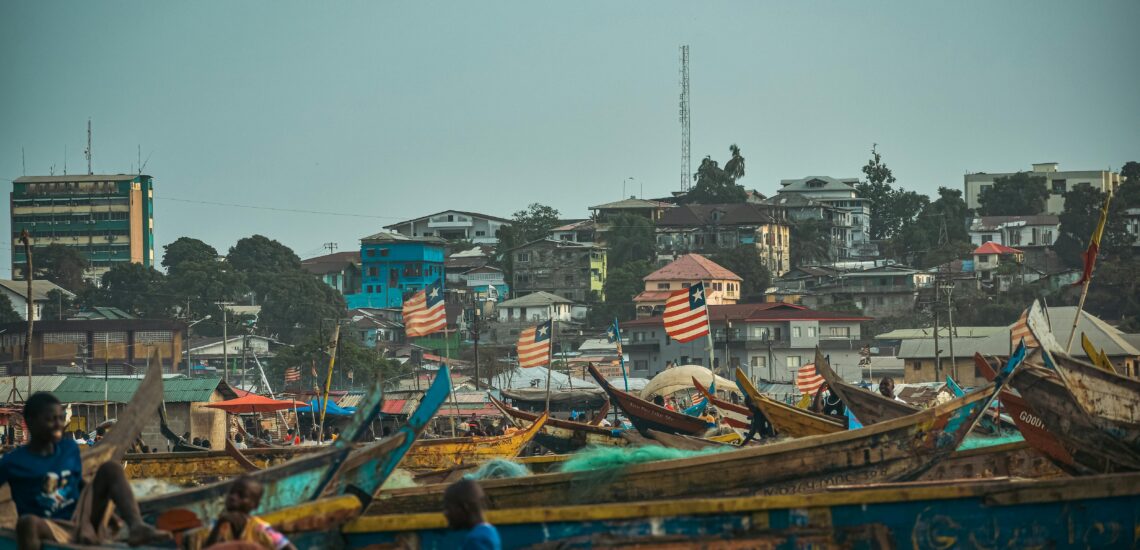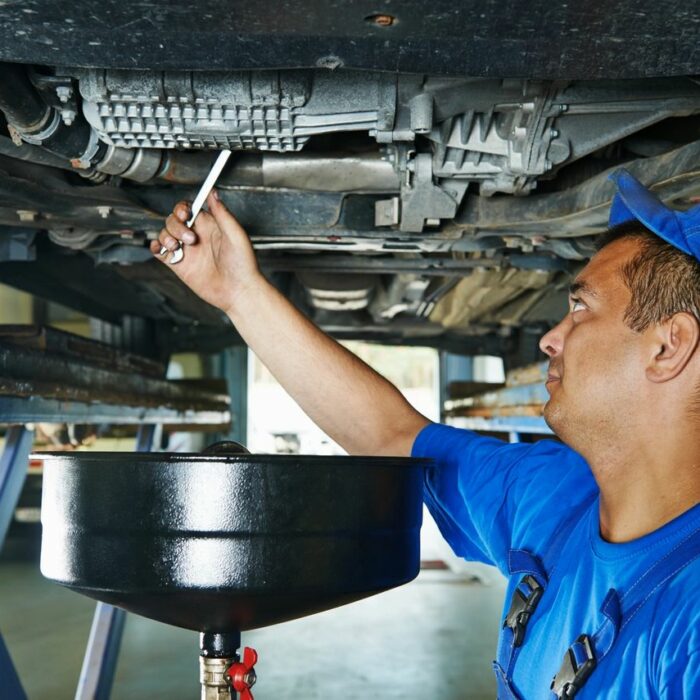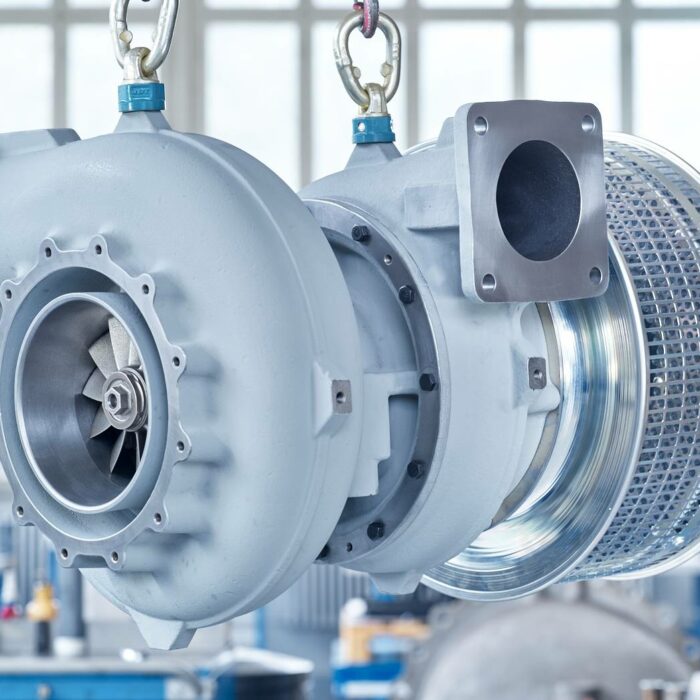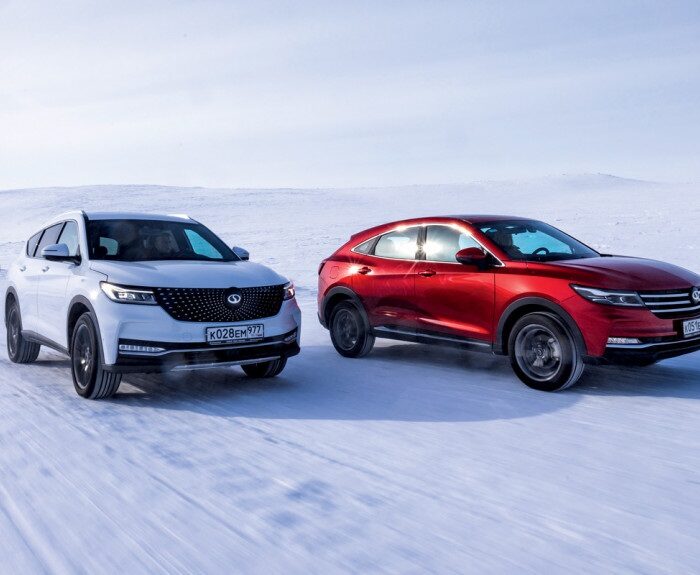Quick facts about Liberia:
- Population: Approximately 5.3 million people.
- Capital: Monrovia.
- Official Language: English.
- Other Languages: Indigenous languages including Kpelle, Bassa, and Vai.
- Currency: Liberian dollar (LRD).
- Government: Unitary presidential republic.
- Major Religion: Christianity, with Islam and traditional beliefs also practiced.
- Geography: Located on the west coast of Africa, bordered by Sierra Leone to the northwest, Guinea to the north, Côte d’Ivoire to the east, and the Atlantic Ocean to the southwest. Liberia’s landscape includes coastal plains, rainforests, and plateaus.
Fact 1: Liberia has diverse landscapes
Liberia has a range of diverse landscapes that contribute to its natural beauty and ecological richness. The country’s geography includes coastal plains, tropical rainforests, plateaus, and mountainous regions:
- Coastal Plains: Liberia has about 560 kilometers (350 miles) of Atlantic coastline, characterized by sandy beaches, mangroves, and lagoons. These coastal areas are vital for both fishing and tourism.
- Tropical Rainforests: Liberia contains some of West Africa’s last remaining primary rainforests, especially in protected areas like Sapo National Park. These rainforests are home to unique flora and fauna, including pygmy hippos, chimpanzees, and various bird species.
- Plateaus and Rolling Hills: Much of central Liberia consists of rolling hills and plateaus, where rivers like the St. Paul and Cestos flow. These regions are also important for agriculture, producing crops like rice, cassava, and rubber.
- Mountainous Regions: In northern Liberia, near the Guinea border, lie the Nimba Mountains, which reach elevations of over 1,300 meters (4,300 feet). This area is not only rich in biodiversity but also holds significant mineral resources, particularly iron ore.
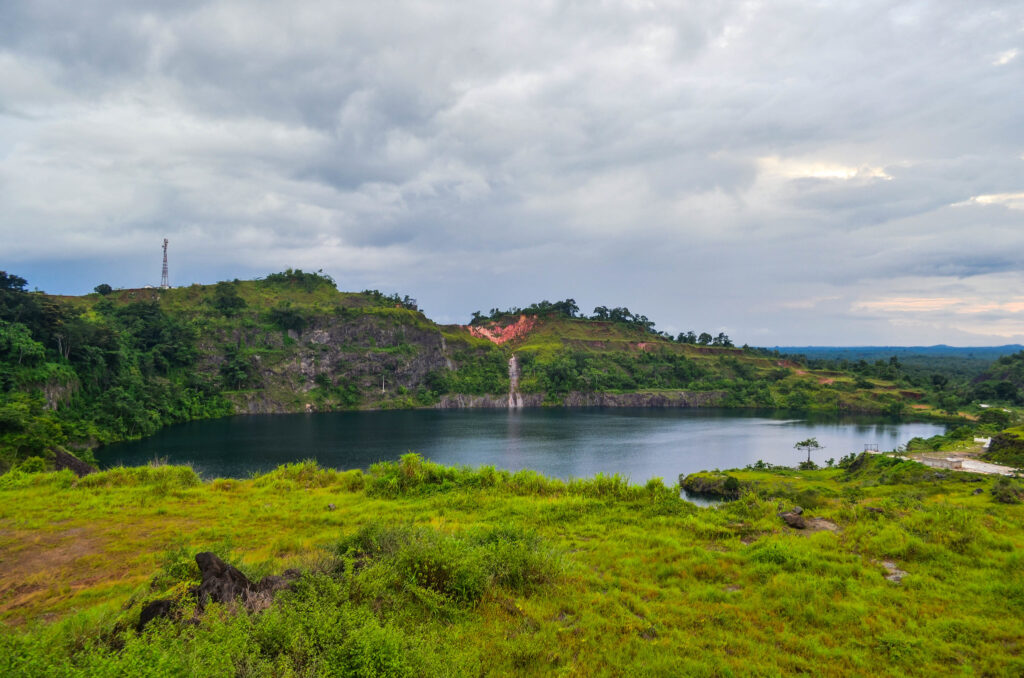
Fact 2: Liberia was founded by freed slaves from the U.S.
Liberia was founded by freed African American slaves from the United States in the early 19th century. The American Colonization Society (ACS), an organization established in 1816, sought to resettle freed Black Americans in Africa. The first group arrived in 1822, and over the following decades, thousands more followed, establishing settlements along the Liberian coast.
In 1847, Liberia declared independence, making it Africa’s first and oldest republic. The settlers, known as Americo-Liberians, shaped the country’s government, economy, and social structure for more than a century. Americo-Liberians developed a distinct identity, blending African and American customs, and their influence on Liberia’s development is still felt today, even as the nation has evolved to include many indigenous cultures.
Fact 3: Liberia has good surfing spots
Liberia is gaining recognition as an emerging destination for surfers, thanks to its impressive and relatively untouched surfing spots along the Atlantic coast. Robertsport, in particular, is Liberia’s most famous surf spot, known for its long, consistent waves that attract surfers from around the world. Situated near the border with Sierra Leone, Robertsport offers several breaks, including Cotton Trees and Fisherman’s Point, which cater to different skill levels and provide both beach and point breaks.
The country’s tropical climate and warm waters make it a comfortable surfing destination, with the best waves typically appearing between May and October during the rainy season. Liberia’s surf culture is still developing, and its uncrowded beaches provide a unique experience compared to more crowded surf spots globally.
Note: If you plan to visit the country, check if you need an International Driving Permit in Liberia to drive.
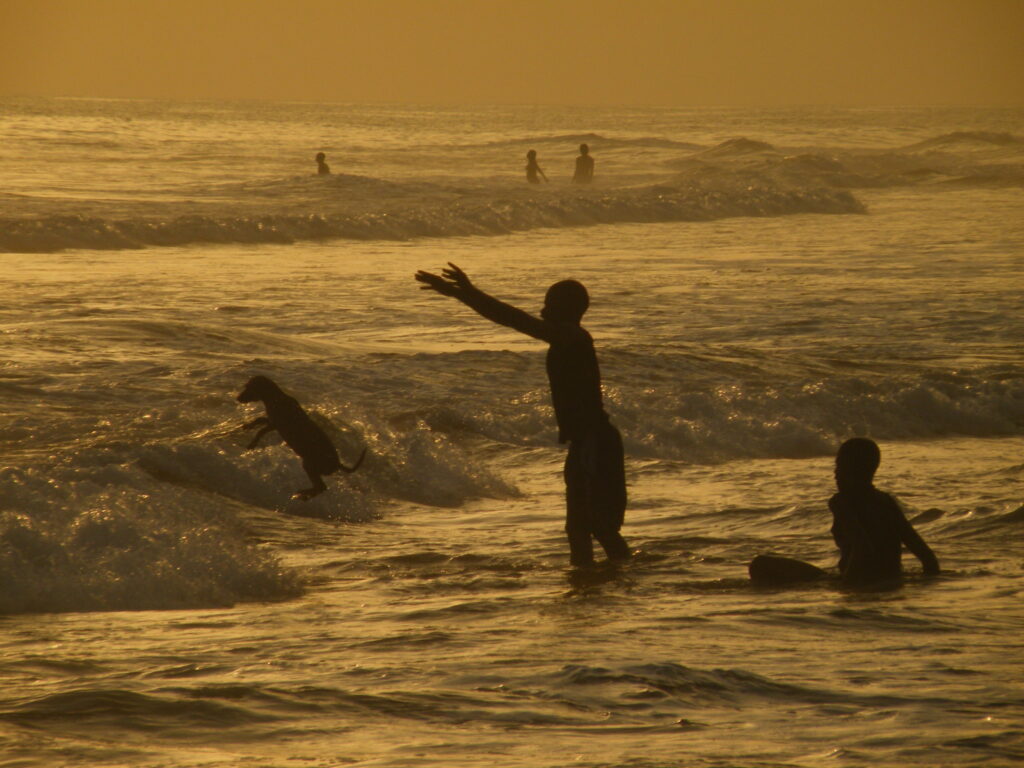
Fact 4: These places were called the shores of grain and pepper
The region encompassing present-day Liberia and Sierra Leone was historically known to European traders as the “Grain Coast” and “Pepper Coast” due to the abundance of valuable spices and grains traded there. The Grain Coast, which includes much of Liberia’s coastline, was named for the grains of paradise (Aframomum melegueta), also called melegueta pepper or Guinea pepper, which were highly sought after by European traders for their spice value and medicinal properties. This pepper is similar to black pepper in taste but has a slightly more aromatic flavor.
Fact 5: The first female president of an African country has been elected in Liberia
Liberia was the first African country to elect a female president, Ellen Johnson Sirleaf, in 2005. Sirleaf, often referred to as the “Iron Lady,” won the presidency after years of civil conflict in Liberia and took office in January 2006. Her election was a landmark moment, making her the first woman in Africa to be democratically elected as head of state.
Sirleaf’s presidency focused on post-war reconstruction, economic reform, and strengthening governance, earning her both local and international respect. In 2011, she was awarded the Nobel Peace Prize alongside two other women’s rights activists for her work in promoting peace, democracy, and women’s rights.
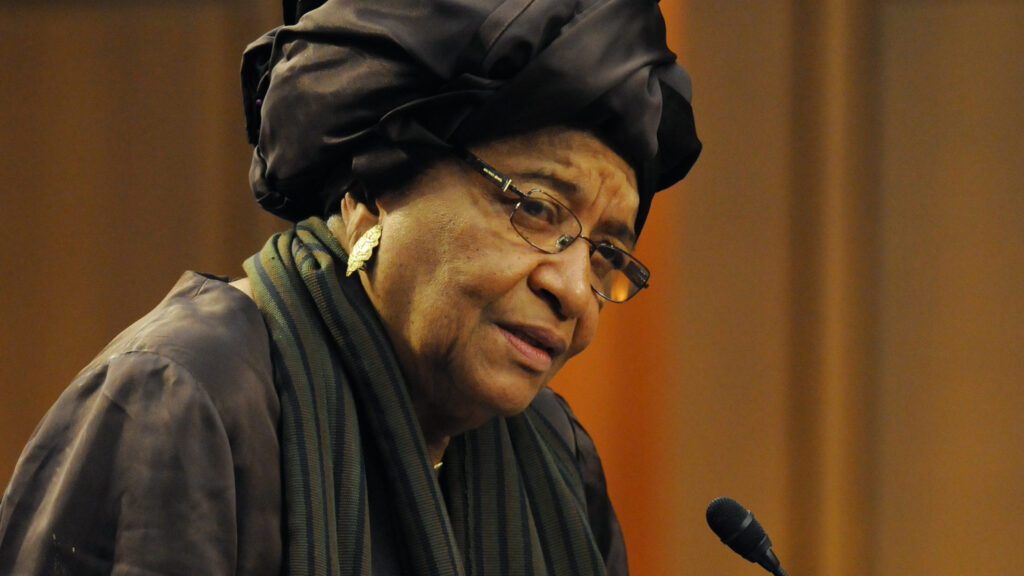
Fact 6: Liberia has been hit hard by the Ebala virus
Liberia was severely affected by the Ebola virus outbreak that struck West Africa from 2014 to 2016. Liberia, along with neighboring Guinea and Sierra Leone, was at the epicenter of this epidemic. The outbreak was devastating, with Liberia reporting the highest number of Ebola cases and deaths among the three affected countries. More than 10,000 Liberians were infected, and over 4,800 died from the virus.
The Ebola outbreak put immense strain on Liberia’s already limited healthcare system, leading to international health crises and requiring extensive global aid and medical support. The country declared itself Ebola-free in 2015, but the epidemic left a lasting impact on Liberia’s healthcare infrastructure, economy, and social fabric. Following this, Liberia has worked on improving disease surveillance, healthcare facilities, and emergency response capabilities to better manage potential future outbreaks.
Fact 7: It is beneficial for ships to fly the flag of Liberia
Liberia operates one of the world’s largest flag of convenience registries, making it highly beneficial for ships to fly the Liberian flag. This practice allows vessels owned by foreign companies to be registered in Liberia, providing several advantages, including lower registration fees, reduced taxes, and less stringent regulations compared to many other countries.
The Liberian registry was established in 1948 and has since grown into one of the largest and most widely used in global shipping. The country’s regulatory framework offers flexibility and economic incentives, such as simplified labor laws and lower operating costs. This is why many commercial shipping companies, including major global shipping fleets, choose to fly the Liberian flag even though they are based elsewhere.
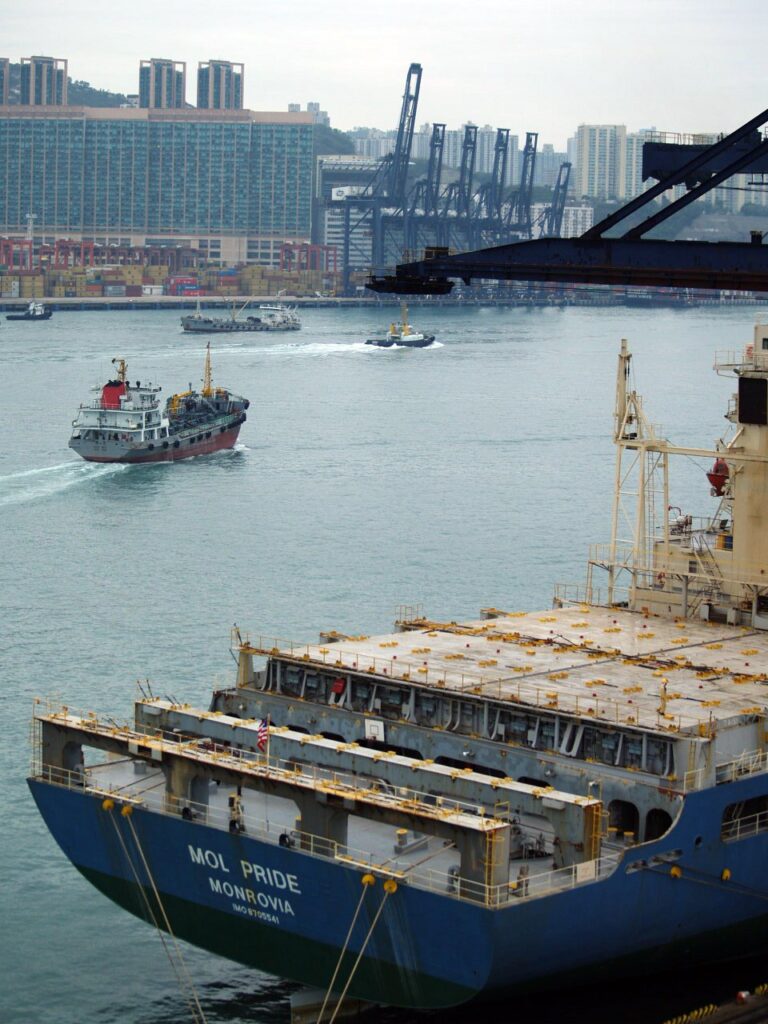
Fact 8: The country’s capital is named after a U.S. president
Liberia’s capital, Monrovia, is named after a U.S. president—James Monroe, the fifth president of the United States. The city was named in his honor due to his support for the establishment of Liberia as a colony for freed African American slaves. Monrovia was founded in 1822 by the American Colonization Society, which sought to resettle freed Black Americans in Africa.
Fact 9: One of the largest rubber plantations is located in Liberia
Liberia is home to one of the largest rubber plantations in the world, known as the Firestone Rubber Plantation. Established in 1926 by the Firestone Tire and Rubber Company, the plantation covers approximately 200 square miles (about 51,800 hectares) in the southwestern part of the country, primarily in the Margibi County area.
Rubber production has been a significant part of Liberia’s economy, and the Firestone plantation has played a crucial role in this sector. The plantation produces natural rubber latex, which is a key raw material for tire manufacturing and various rubber products. However, the plantation has also faced challenges, including labor disputes, environmental concerns, and the impact of civil unrest on operations.
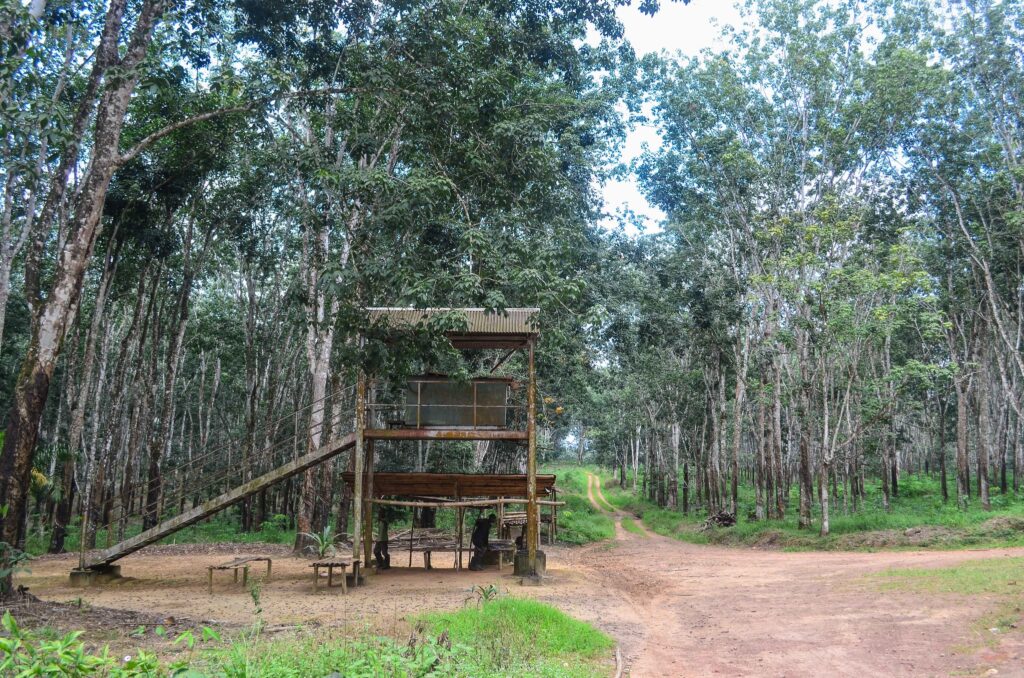
Fact 10: Liberia is one of 3 countries not using the metric system
Alongside the United States and Myanmar, Liberia continues to use a mix of customary units, including those derived from the Imperial system.
In Liberia, people commonly use non-metric measurements for various aspects of daily life, including distance (miles), weight (pounds), and volume (gallons). However, the country has made efforts to transition to the metric system, especially in government and educational contexts. Despite these efforts, the metric system is not yet fully adopted or universally utilized in practice, leading to a dual system of measurements in the country.

Published November 03, 2024 • 7m to read

